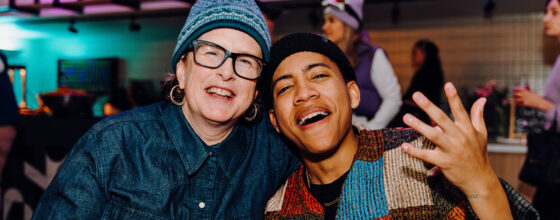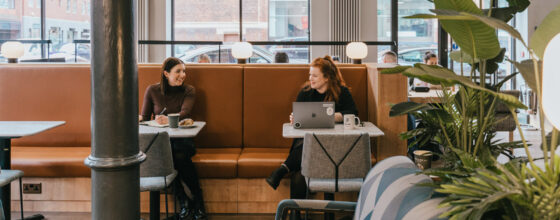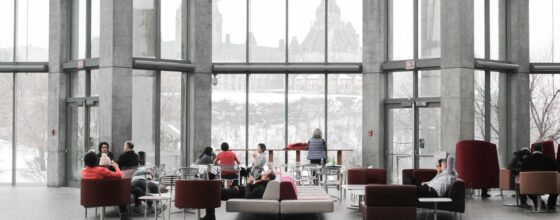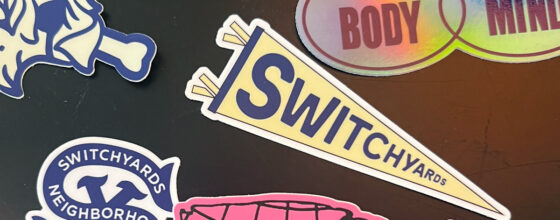Humans + Tech: General Managers
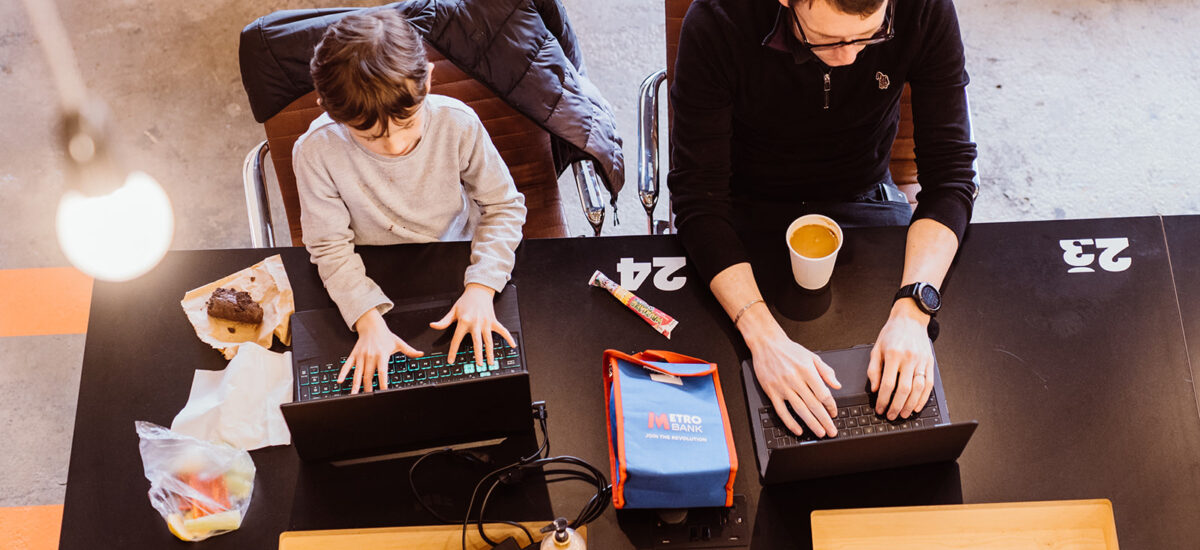
This blog is supported by Yardi.
Coworking spaces are multifunctional melting pots for different professions and disciplines, so their General Managers have a lot to remember, a lot of staff to take care of, and often a lot of physical ground to cover. While managing a coworking organisation or flex workspace is rewarding in so many ways, it’s also… a lot.
We were curious to find out how our hard working GMs are using tech and AI to help run their coworking spaces. Are they committed to tried and tested ways of holding it all together, or could a clever computer become their right hand… robot?
Tech behaving humanly
Coworking is founded on the values that underpin the hospitality industry. For coworking operators like Working From_, which is part of the Hoxton Hotel, a human team will always be present. “We’re front facing,” Sarah Parker, General Manager of Working From_, tells us. “We have a team here on site permanently from the second we open to when we close.”
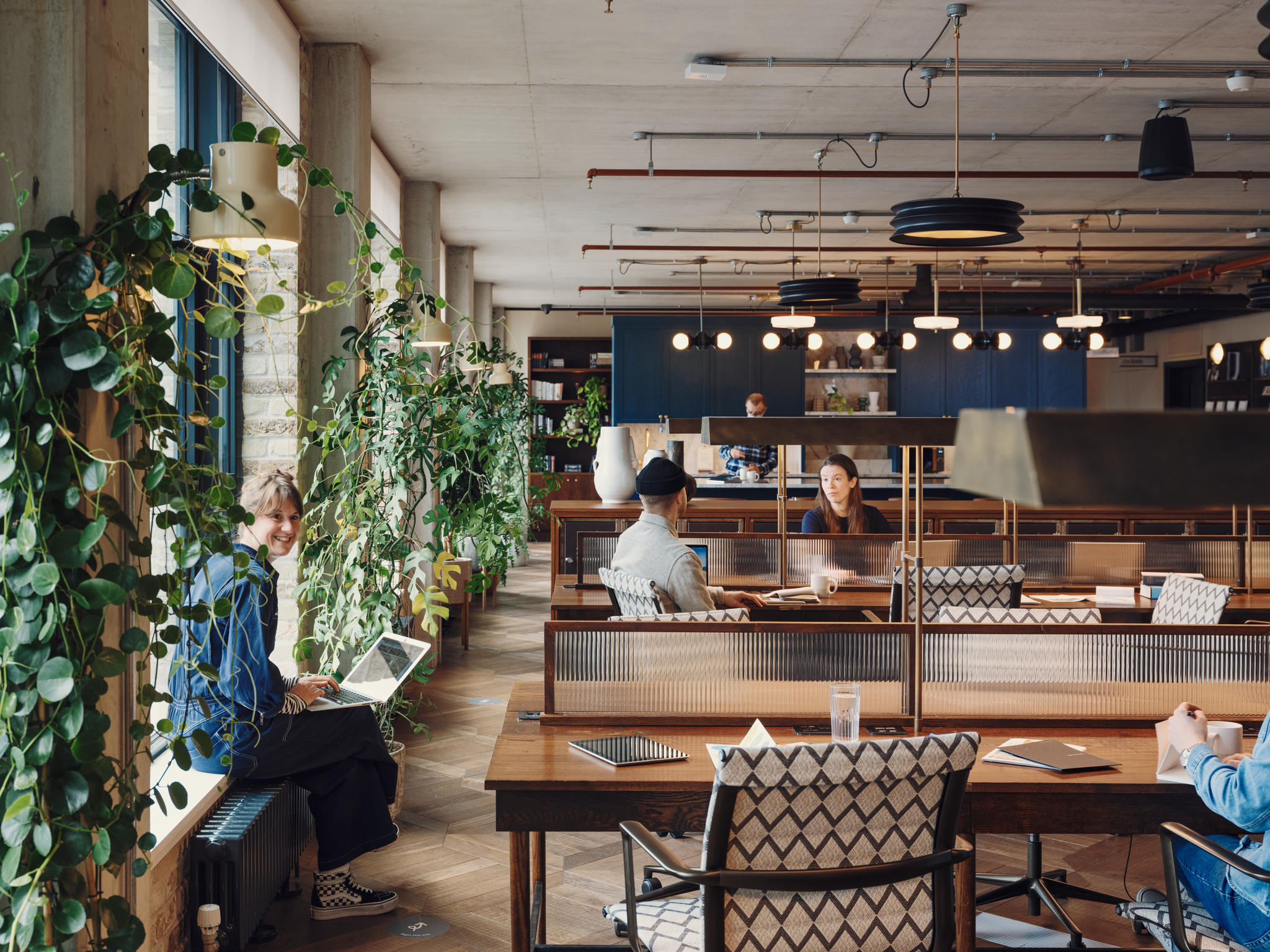
Photo Credit – Working From_
On the other hand, Yoooserv, which provides premium serviced workspace to businesses of all shapes and sizes, have already started integrating cute robot concierges into their team. “Lots of offices just put fruit on a countertop, but we have a robot that goes around delivering fresh fruit to each individual office,” says Area Manager Will Grealey. “There’s a novelty factor to a cute robot arriving in your office – it’s a bit like the Harry Potter sweet cart!”
That’s not to say that Will undervalues the importance of real human interaction in Yoooserv’s spaces. “The day we go down the route of AI overshadowing real humans will be the day we suffer as a human race. I believe that AI is actually here to empower us as human beings, not to do our jobs. It’s here to make our communities stronger.”
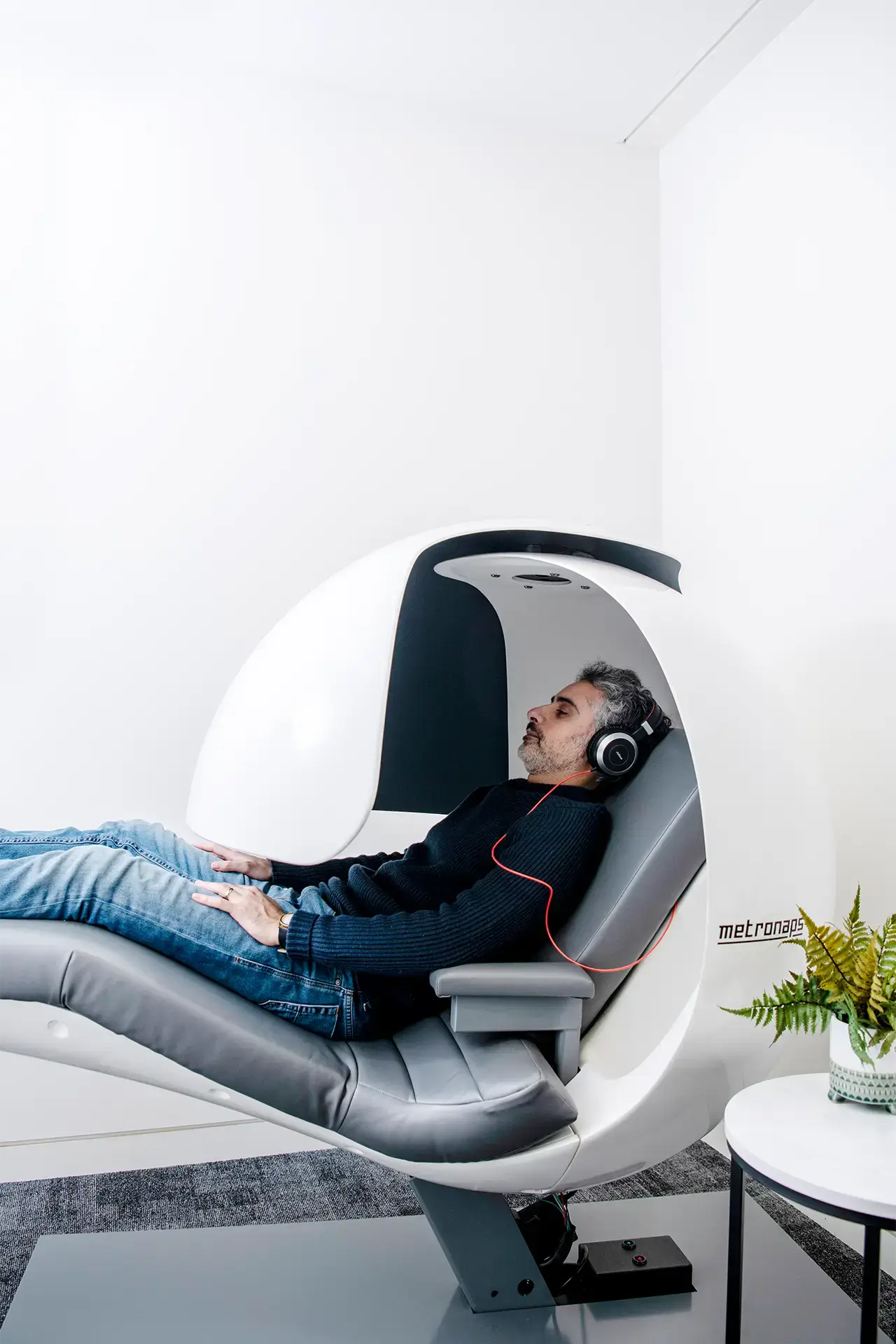
Photo Credit – Yoooserv
Tech builds bridges
Many of us have the option to work from home now, but those that choose to cowork tend to be seeking human connection throughout their working day. When coworking spaces embrace AI, it’s often to help their members get to know one another better.
Jessica Samson, General Manager of PLATF9RM, told us about some new AI software that the team has introduced into the online community.
“We’re trialing a new piece of software called Hey There.” The aim is to get people sitting down for coffee together more regularly, she explains to us. “If you’re part of the Hey There group on Slack, it will match you with somebody else in the group once a week, and set up a meeting between the two of you.”
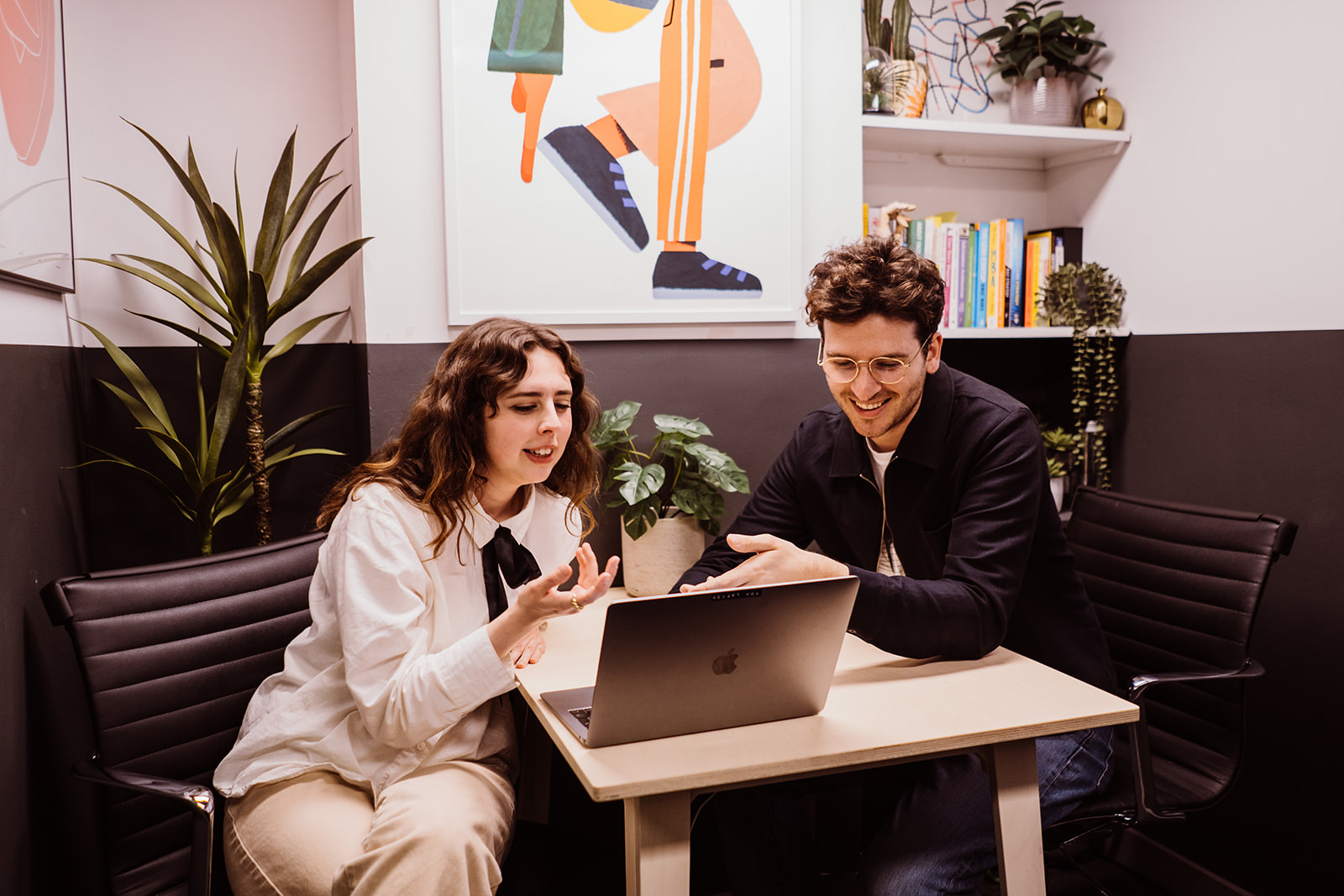
Photo Credit – PLATF9RM
The Working From_ community uses Meta’s Workplace to connect with one another. It’s a great place for Sarah to receive feedback about her members’ experiences.
“Recently, a member wrote a post about our housekeeping team,” Sarah remembers. “She’d lost her engagement ring and our housekeeper dug through the whole bin and found it! We reward individuals in our team for going above and beyond, so it was great to receive that feedback.”
The Working From_ team also stays in touch using Meta’s Workplace. “We’re part of a big company and Meta’s Workplace really helps us to stay close to one another, even if we can’t be together in person.” Embracing instant messaging has been game-changing for the Working From_ team’s productivity. “Email exchange is down by about 80%, as we can instantly chat instead. We’ve got a site in Chicago and I can just drop them a message whenever I need to.”
Tech informs big decisions
The new hybrid working arrangements that so many companies have adopted are a blessing to the flex office and coworking industry, which is growing month-on-month around the world – but can also be challenging when it comes to managing bums-on-seats. Emerging tech can really help General Managers of flexible workspaces to capture data and understand the behaviours of their employees and members.
“We have GDPR compliant occupancy sensors on the ceiling.” Will tells us. “They don’t actually catch anyone’s facial features or personal details – they just tell us that there is a person at a desk.” These kinds of sensors can help manage budgets by monitoring the occupancy rates of coworking desks, and provide behavioural insights that can help operators to make decisions on new spaces. They can also provide extra value for office tenants. “I can give our tenants insight into their occupancy, and they can save money by downsizing if they aren’t using all the space they’re paying for.”
The challenge for many General Managers is how to organise, store and make use of this kind of data in the long term. “We don’t need technology to tell us that someone sits in a certain place, because we’re there on site all the time,” says Sarah. “But it’s important that we find a way to retain the data that is held in the brains of our team members when they leave. We’re looking into a tech solution that will act as a single source of truth for the whole company.”
Can tech keep people safe?
With so many people in a building together, health and safety has to be high on every GM’s list of priorities. Tech powered door entry systems not only keep members safe and their belongings secure – it also helps General Managers to get everyone organised in an emergency. “Lock and key is a thing of the past in our flex office spaces,” Will tells us. “If we need to lead an evacuation or there’s any kind of incident, we know who is in the building and in what area, thanks to our entry system.”
Is AI to be trusted when it comes to health and safety, though? Sarah isn’t so sure. “People are wary of AI, especially for things like risk assessments. I think it’s all still a bit unknown.”
Tech, taken care of
Members love the idea of a fully tech-enabled space, but they don’t love encountering those pesky tech hitches.
“We’re dedicated to giving our members everything that they need to do what they need to do, quickly and effectively,” Sarah from Working From_ tells us, “so we have a Tech Manager on site for all of our members, every day.”
To maintain the hospitable vibe, Working From’s Tech Manager goes along to new member inductions with the Engagement Manager.
“Companies tend to ask a lot of questions about online security, so having a Tech Manager on hand to meet them and answer any questions really helps to put them at ease. Our tech team can’t interfere with members’ equipment, but they can offer advice and be proactive with our equipment.”
The Tech Manager doesn’t just wait around for something to go wrong. They go around checking all the meeting rooms and the tech around the space throughout the day. Their role is crucial to the success of the coworking space. “While people do love the personal approach, it’s a fast paced life and it’s getting faster, isn’t it?” Sarah says. “We just want things to be as easy and seamless for our members as possible.”
Setting boundaries for tech
It’s clear that tech and AI have enormous potential to help General Managers run their spaces, but it’s important that it’s treated with caution. To use emerging tech to its best potential at PLATF9RM, Jess knows that she’ll need to do some solid planning.
“We’re planning to invest time into creating a strategy around the use of AI, to ensure it’ll contribute to our company’s development.” Like anything else, this strategy needs to fit into the wider brand picture. “If, for example, we want to use Chat GPT to help us come up with ideas for a community event, we need to be asking: does this idea fit with our values? Is it something our community wants to go to? Or is it actually a pretty run-of-the-mill idea that Chat GPT has picked up because it’s currently doing the rounds?”
Of course, there’s potential for brand new roles to be created as AI becomes more widespread and integrated. Jess is already thinking about what this might look like. “Maybe at some point, when the technology is good enough, we’ll have an “AI guardian” who inputs the right prompts to AI and edits the outputs to make sure that the content that’s being produced feels on brand.
Does this industry really need tech?
As Jess pointed out to us, the speed at which technology is developing can be a challenge in itself when it comes to running a coworking space. “You’ve got to invest time and money in new products and platforms, but you want to see a return on that investment immediately because there’s so much out there to try.” There’s a temptation to try it all but doing so can be pretty overwhelming.
At the same time, it’s important to keep up.
“Do I think coworking needs AI? I don’t necessarily think so – not in the same way that the space needs internet, Wi Fi, coffee and a good team. But it’s going to be used whether we need it or not, so we might as well make the best of it.”
Jess acknowledges that tech and AI can be of huge benefit to certain people.
“For instance, someone with ADHD might prefer to send a voice note than a text message because they can get across what they want to say in the way they want to say it in less time.”
On the flip side, receiving a voice note might not be ideal if you’re in a public space. Jess reflected on this and came up with a solution that would work for the PLATF9RM community.
“In the future, it would be great if our members could choose how they want to send and receive messages based on the way they prefer to deliver and process information.”
This article was researched and written by humans Emilie Lashmar and Rose Radtke, with the help of AI. We interviewed all of the General Managers on Zoom, and used Otter.ai to record and transcribe our conversations. We used Notion to capture our thinking.
Thank you to Yardi for sponsoring this article. Yardi is a software company that is passionate about creating engaging content whilst championing those working within this evolving industry. Their extensive range of software products and services is used by a variety of coworking and real estate companies and professionals.

